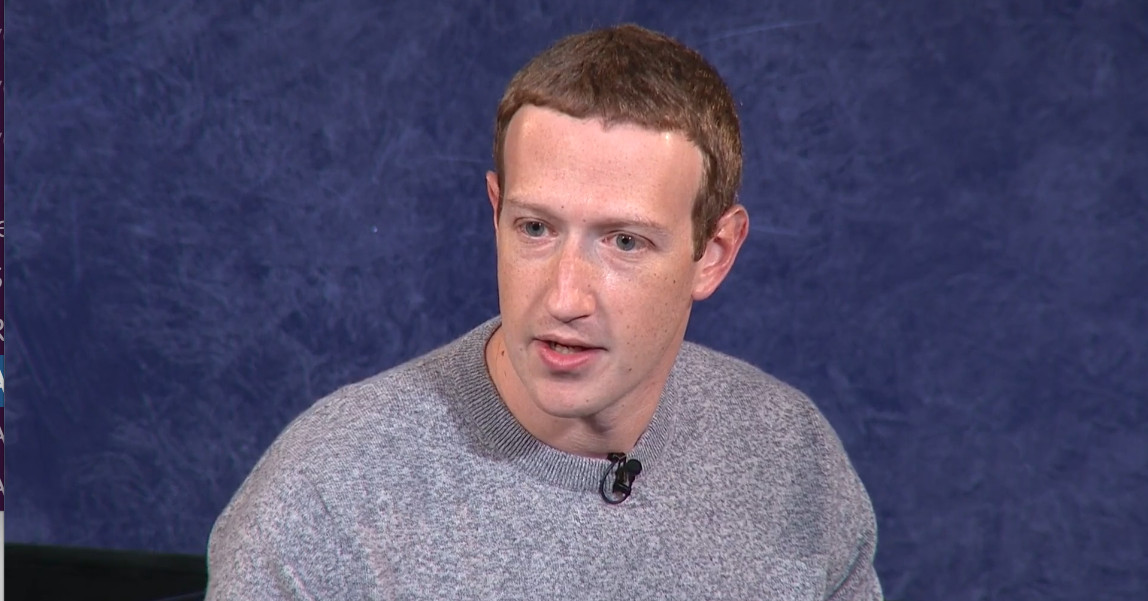
On Friday morning, Facebook announced its plan to spend millions of dollars on high-quality journalism, fueling the launch of a new dedicated news tab on its platform. CEO Mark Zuckerberg joined News Corp CEO Robert Thomson for an interview soon after, and Thomson hammered home the need for objective journalism in the age of social media, waxing nostalgic about the importance of rigorous fact-checking in his early career.
An hour later, however, Zuckerberg struggled to explain how Facebook’s most controversial new partner fits into its mission.
Facebook News is partnering with a variety of regional newspapers and some major national partners, including USA Today and The Wall Street Journal. But as The New York Times and Nieman Lab report, its “trusted” sources also include Breitbart, a far-right site whose co-founder Steve Bannon once described it as a platform for the white nationalist “alt-right.” Breitbart has been criticized for repeated inaccurate and incendiary reporting, often at the expense of immigrants and people of color. Last year, Wikipedia declared it an unreliable source for citations, alongside the British tabloid Daily Mail and the left-wing site Occupy Democrats.
That’s led to questions about why Breitbart belongs on Facebook News, a feature that will supposedly be held to far tougher standards than the normal News Feed. In a question-and-answer session after the interview, Zuckerberg told Washington Post columnist Margaret Sullivan that Facebook would have “objective standards” for quality.
“Most of the rest of what we operate is helping give people a voice broadly and making sure that everyone can share their opinion,” he said. “That’s not this. This is a space that is dedicated to high-quality and curated news.”
But when New York Times reporter Marc Tracy asked how including Breitbart served that cause, Zuckerberg emphasized its politics, not its reporting. “Part of having this be a trusted source is that it needs to have a diversity of views in there, so I think you want to have content that represents different perspectives,” he said. Zuckerberg reiterated that these perspectives should comply with Facebook’s standards, and he was cagey about Breitbart’s presence, saying that “having someone be possible or eligible to show up” doesn’t guarantee frequent placement. “But I certainly think you want to include a breadth of content in there,” he said.
Facebook hasn’t released a full list of News partners, so we don’t know the project’s full scope. Breitbart is hardly the only right-leaning name Facebook’s list, which includes National Review, The Washington Times, and News Corp’s own Fox News. But it has faced unique challenges to its editorial integrity — including, in recent years, some of Breitbart’s own former staff denouncing its policies.
Zuckerberg’s answer is unlikely to satisfy critics, who see the site’s inclusion as an example of Facebook surrendering principle to appease right-wing commentators. Left-leaning nonprofit Media Matters for America called the decision “reflexive pandering to conservative pundits, right-wing extremists, and white nationalists.” Activist group Sleeping Giants — which has spearheaded a major advertiser boycott of Breitbart — retweeted several reporters criticizing the news, including BuzzFeed News writer Joe Bernstein, whose reporting on Breitbart and white nationalism caused one of its biggest backers to sell his stake.
But Facebook wants to win over Republicans, including lawmakers who have grilled Zuckerberg in Congress over shaky claims of “anti-conservative bias,” as well as President Donald Trump, who has threatened tech companies with new laws and antitrust action. Leaving out Breitbart might earn Facebook condemnation from these quarters.
In a New York Times editorial, Zuckerberg noted that outright misinformation is banned on Facebook News. “If a publisher posts misinformation, it will no longer appear in the product,” he wrote. So in theory, Breitbart will only stay on Facebook News if it hews to the rules. But that doesn’t explain why Facebook chose an outlet known for sensationalism and misinformation in the first place — and as Facebook News matures, kicking off a site like Breitbart might cause more controversy than never including it at all.
https://www.theverge.com/2019/10/25/20932653/facebook-news-breitbart-mark-zuckerberg-statement-bias

